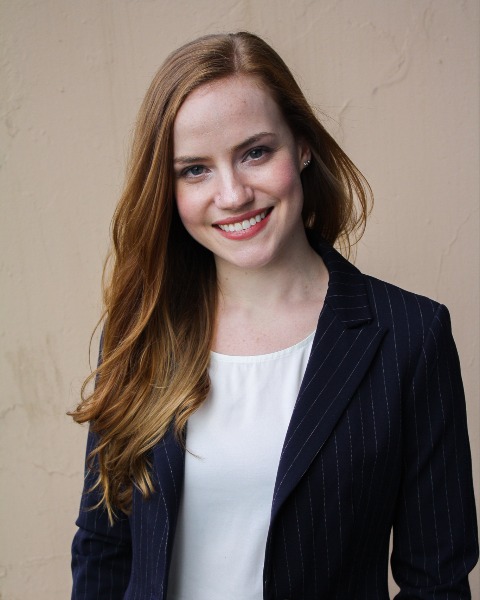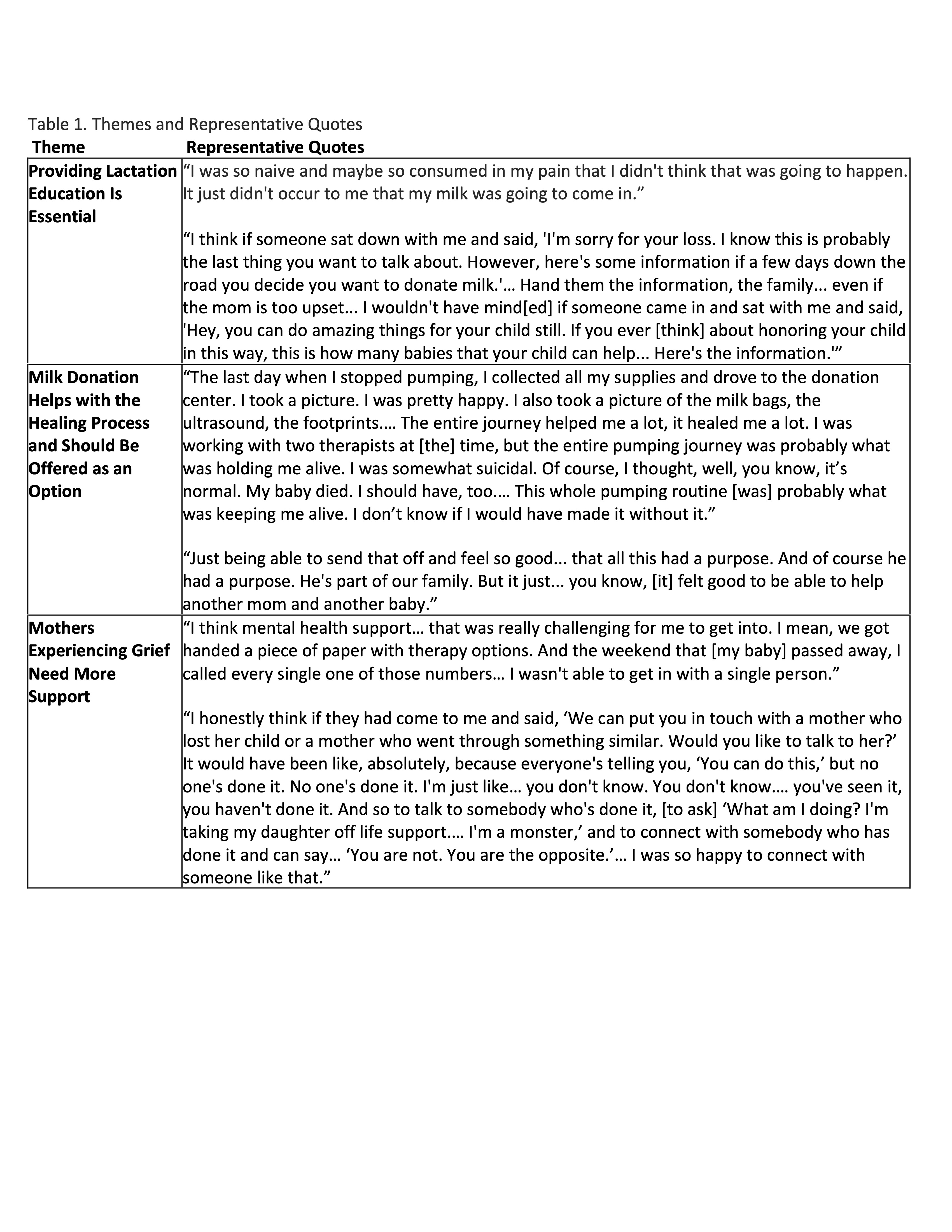Palliative Care
Session: Palliative Care
433 - The Cherry Blossom Family: Exploring the Impact of a Lactation and Bereavement Support Program for Grieving Mothers after a Perinatal Loss
Sunday, April 27, 2025
8:30am - 10:45am HST
Publication Number: 433.6664
Errica Capossela, Rady Children's Hospital San Diego, San Diego, CA, United States; Stephanie J. Lehman, UC Health Milk Bank, San Diego, CA, United States; Alison Wolf, University of California, San Diego School of Medicine, San Diego, CA, United States; Mayra Rivera Ramirez, UC Health Milk Bank, San Diego, CA, United States; Ruth Hammer, UC San Diego Health, La Jolla, CA, United States; Brooke Sanchez, University of California, San Diego School of Medicine, Placitas, NM, United States; Lisa M. Stellwagen, University of California, San Diego School of Medicine, La Jolla, CA, United States; Krishelle L. Marc-Aurele, University of California, San Diego / Rady Childrens Hospitals, La Jolla, CA, United States

Errica Capossela, DO, MS (she/her/hers)
Neonatal-Perinatal Medicine Fellow
UC San Diego/Rady Children's Hospital
San Diego, California, United States
Presenting Author(s)
Background: The loss of a child is devastating, and those who experience miscarriage, termination, stillbirth, or death of an infant are no exception. In addition to the profound impact on their mental and emotional wellbeing, these mothers’ bodies will progress through lactogenesis, and they will have to navigate the extra challenge of having a milk supply but no longer having a baby to feed. Previous literature has shown that mothers who experience these losses may find expressing and donating their breastmilk to be helpful with the grieving process. That said, barriers to expression and donation still exist, including mothers’ limited awareness and access to these options.
Objective: We aimed to explore the impact of the Cherry Blossom Family (CBF), a lactation and bereavement support program that provides education about lactation after loss as well as breast pumping supplies to bereaved mothers.
Design/Methods: We recruited mothers who received support from the CBF program since its creation in 2021 through 2024. We conducted interviews virtually using a semi-structured guide. For Spanish speaking subjects, we utilized a translator or a certified bilingual native Spanish speaker. All interviews were audio-recorded, transcribed, and translated if necessary. Multiple cycles of general and focused coding were performed with a team-based approach. Disagreements between coders were resolved through discussion and consensus.
Results: We completed interviews with thirteen mothers between July 2023 and July 2024. Six of the mothers experienced a fetal loss and seven experienced an infant loss. Eleven interviews were conducted in English and two in Spanish. We identified three primary themes. The first two themes help to illustrate the importance of a lactation and bereavement program: 1) providing lactation education is essential; 2) milk donation helps with the healing process and should be offered as an option. The third theme highlights lingering gaps in the care for bereaved mothers: 3) mothers experiencing grief need more support. Representative quotes for each theme can be seen in Table 1.
Conclusion(s): Lactation and bereavement support programs can improve the care of mothers after a perinatal loss, specifically with education and facilitation of milk expression and donation for those who desire it. However, our study highlighted that there is still more work to be done, including offering mothers better mental health resources and helping connect them to others who have experienced similar loss.
Table 1. Themes and Representative Quotes


